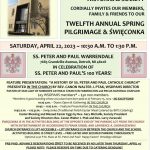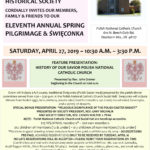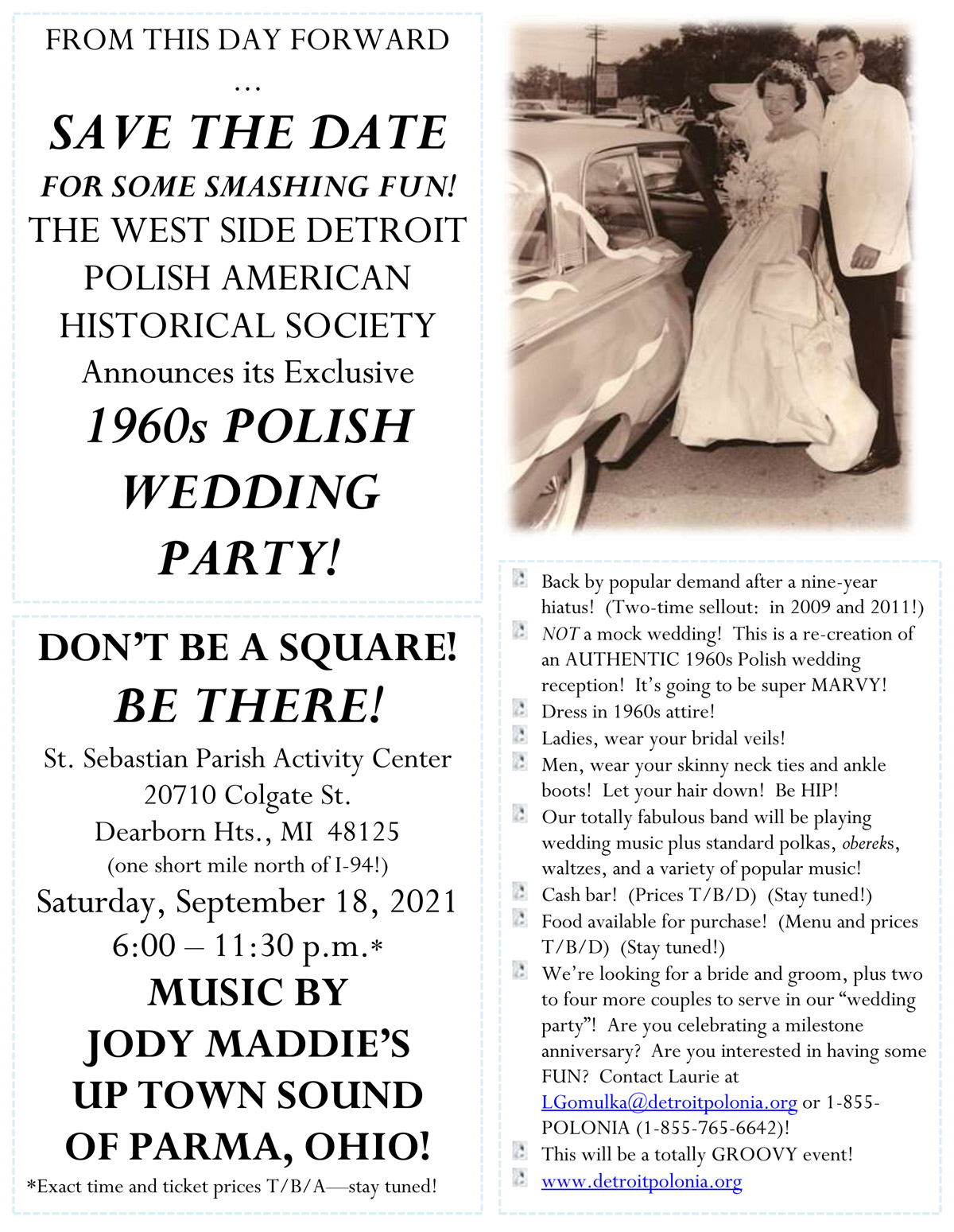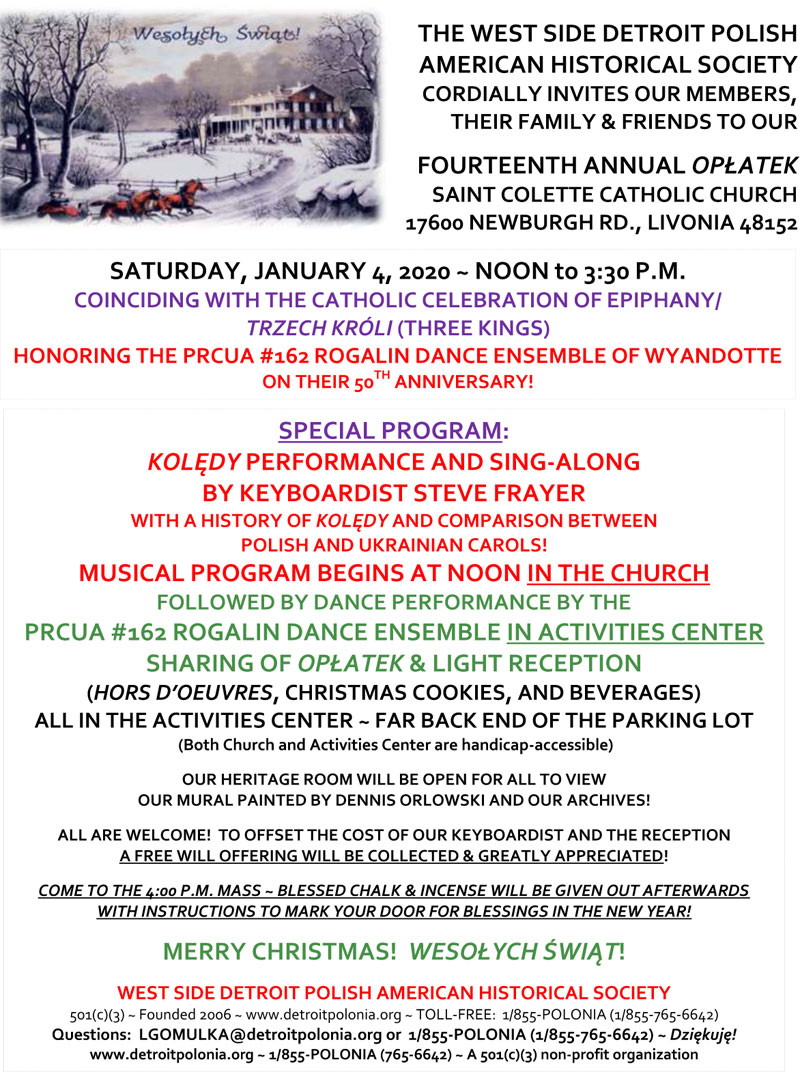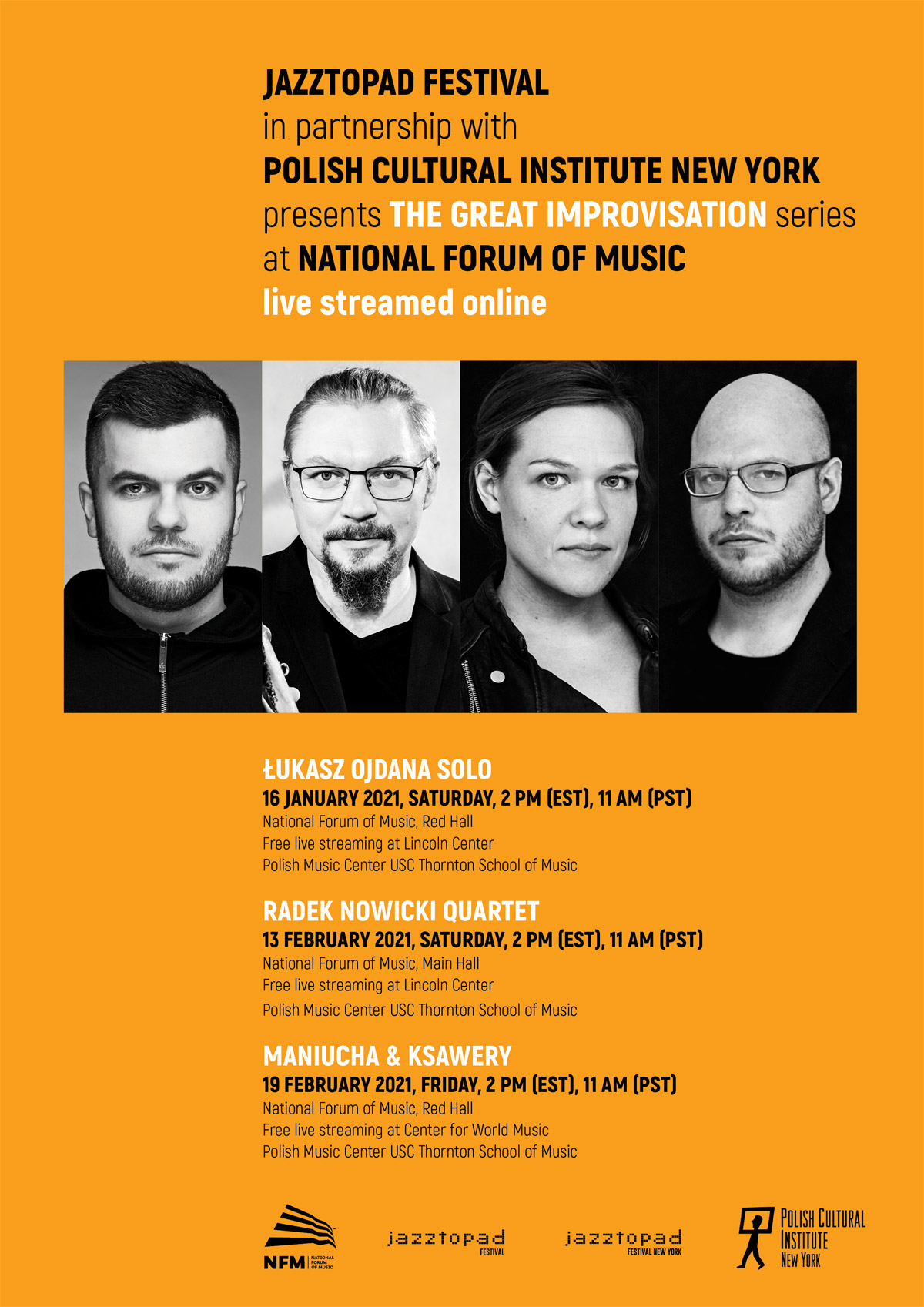
“The Jazztopad Festival, a leading event of its kind in Poland…”
–NATE CHINEN, THE NEW YORK TIMES
“…Jazztopad stands as an internationally renowned festival with a clearly defined ethos, one that combines a strong respect for the traditions and roots of the music with a progressive vision that provides a platform for the contemporary and innovative.”
–IAN PATTERSON, ALL ABOUT JAZZ
JAZZTOPAD FESTIVAL in partnership with POLISH CULTURAL INSTITUTE NEW YORK presents THE GREAT IMPROVISATION series at NATIONAL FORUM OF MUSIC live streamed online
ŁUKASZ OJDANA SOLO
16 JANUARY 2021, SATURDAY, 2 PM (EST), 11 AM (PST)
National Forum of Music, Red Hall
Free live streaming at Lincoln Center
Polish Music Center USC Thornton School of Music
RADEK NOWICKI QUARTET
13 FEBRUARY 2021, SATURDAY, 2 PM (EST), 11 AM (PST)
National Forum of Music, Main Hall
Free live streaming at Jazz at Lincoln Center
Polish Music Center USC Thornton School of Music
MANIUCHA & KSAWERY
19 FEBRUARY 2021, FRIDAY, 2 PM (EST), 11 AM (PST)
National Forum of Music, Red Hall
Free live streaming at Center for World Music
Polish Music Center USC Thornton School of Music
Center for Traditional Music and Dance
The Ukrainian Museum
Jazztopad Festival, in partnership with Polish Cultural Institute New York presents The Great Improvisation series online live streamed from the National Forum of Music (NFM) in Wrocław, Poland. The series presents various faces of jazz – from bold avant-garde and daring improvisation through to the mainstream. The ideal acoustics of the NFM halls provide a perfect environment for both young Polish bands as well as established artists. The series has presented such musicians as Wynton Marsalis, Bobo Stenson, Gregory Porter, Tomasz Stańko, Kuba Więcek, Brad Mehldau, and Dianne Reeves.
The Polish jazz scene has been a strongly recognizable brand in the world, both in terms of quality of festivals and the craft of artists. Jazztopad Festival has been running for the past 17 years under the umbrella of the National Forum of Music. Jazztopad’s most distinctive feature is its commitment to commissioning new music and presenting special projects tailored for the festival. As the only Polish festival, Jazztopad has built relationships with the most important jazz centers in the world, supporting the promotion of Polish improvised music and cultural exchange for many years. Since 2015 Jazztopad has had annual editions in New York.
Saturday, January 16, 2021 at 2 PM (EST), 11 AM (PST), outstanding Polish jazz pianist and composer Łukasz Ojdana will present his solo album Kurpian Songs & Meditations, an exploration and blending of jazz with traditional music of the ethnic region of Kurpie in Poland. Free live streaming at Lincoln Center and Polish Music Center USC Thornton School of Music.
Saturday, February 13, 2021 at 2 PM (EST), 11 AM (PST), Radek Nowicki Quartet. Free live streaming at Jazz at Lincoln Center and Polish Music Center USC Thornton School of Music. One of the most distinctive voices of Polish jazz saxophone brought together an all-star band to explore improvisation deeply rooted in and inspired by tradition of such jazz giants as Wayne Shorter or John Coltrane.
Friday, February 19, 2021 at 2 PM (EST), 11 AM (PST), Maniucha & Ksawery. They are a vocal and bass duo drawing inspiration from the deep-rooted yet endangered traditional songs of the vast Polesie region in Ukraine. Their compositions combine jazz improvisation with songs of spring, harvest, weddings, lullabies and love, to create a narrative of the cycles of nature and human life. Free live streaming at Center for World Music, Polish Music Center USC Thornton School of Music, The Ukrainian Museum, and Center for Traditional Music and Dance.
The Great Improvisation online series is presented by Jazztopad Festival and National Forum of Music, in partnership with Polish Cultural Institute New York, and in collaboration with Lincoln Center, Jazz at Lincoln Center, Center for World Music, Polish Music Center USC Thornton School of Music, and Center for Traditional Music and Dance.
ABOUT THE ARTISTS
Łukasz Ojdana is a pianist and a composer known to the wider audience mainly through the renowned trio RGG, with which he has been recording and touring since 2013, though that is only one of his artistic endeavours. For three years Ojdana was a member of Tomasz Stańko’s last quartet, he is also a member of the Zbigniew Namysłowski Quintet. His discography consists of ten award-winning and distinguished albums.
Kurpian Songs & Meditations is his first solo album in which he blends jazz with traditional melodies from the Kurpie region in Poland. As Ojdana explains: When considering my musical identity I came to the conclusion that the most inspirational and natural for me are the contents stemming from the cultural heritage of my country. Choosing such a seemingly obvious topic was not devoid of challenges. What I found interesting in Kurpian songs was that due to the limited temperament of my instrument I could not play them in the 1:1 ratio. The traditional performance of these melodies uses the scale consisting of quarter tones, which are impossible to get from a conventionally tuned piano… The aura of the music, resulting from the highly refined scale, along with its compliance with my harmonic language has multiplied my fascination with this subject – the pianist summed up.
The effect of these explorations is an album of an intimate and honest character, devoid of calculations and imitating trends, recorded almost in one take, without any sound tricks and multiple hours spent in the studio. I cannot play music in a calculated, cold way. I approach each album with the same excitement and discipline, at the same time trying to achieve the best possible end-result. In the case of a solo album I really wanted to catch the moment, while being fully aware of who I am. The energy and emotions that I was carrying that day gave birth to such an album – the musician concluded.
Radek Nowicki Quartet, founded in 2005 performed mainly in Warsaw’s jazz club Tygmont. In 2007, Jazz Forum released an album of the quartet entitled Live, which resulted in an invitation to the “Chopin and his Europe” festival for a performance with Makoto Ozone, Jazz Jamboree 2007, and the 10th Summer Jazz Academy 2017 with Kasia Pietrzko. RNQ’s music is often based on the idea of simultaneous, collective improvisation. Compositions by Nowicki lead to open structures and are a pretext for mutual interaction of musicians creating music open to new ideas and expressions. All members of the quartet are graduates of jazz faculties and departments at the Karol Szymanowski Academy of Music in Katowice. Two of them (Nowicki and Jaros) also graduated from the Jazz Department of the F. Chopin 1st and 2nd degree State Music School in Warsaw.
Radosław Nowicki is a tenor and soprano saxophonist, distinguished by his own characteristic tone. He is a prize-winner at solo competitions: Monte Carlo Jazz Soloist Competition, and the 3rd International Jazz Competition in Szczecin. As an accompanist and co-founder of various bands, Nowicki received the Jazz Juniors 1999 (III) award, the Siedlce Jazz Standards Festival (Grand Prix), and in 2004 the Kultursalon Hörbiger award in Vienna. Nowicki has collaborated with such great musicians as inter alia, Michał Tokaj, Artur Dutkiewicz, Aga Zaryan, Michał Miśkiewicz, Marita Alban Juarez, Jerzy Małek, Krzysztof Pacan, Paweł Kaczmarczyk, Monika Borzym, Grzegorz Karnas and recently with Marcin Wasilewski Trio. The saxophonist has also performed with Tomasz Stańko in the concert project “PEYOTL”, realised together with Andrzej Smolik, and was also a member of Zbigniew Namysłowski’s Big Band. Apart from the quartet, the saxophonist’s most important endeavors include Nowicki / Święs / Frankiewicz trio. In 2013 Nowicki was nominated for a Fryderyk Award of the Phonographic Academy in the Jazz Album of the Year category (for Pathfinder released by Multikulti Records).
Michał Tokaj, pianist, composer and arranger, a leader of his own trio, nominated and awarded with numerous Fryderyk Music Awards by the Phonographic Academy. Michał Tokaj is the winner of the first prize at the International Jazz Improvisation Competition in Katowice and two-time winner of the Jazz Juniors. He is known for his collaboration with Eddie Henderson, Bennie Maupin, Victor Lewis, Monty Waters, Jan “Ptaszyn” Wróblewski, Janusz Muniak, Tomasz Szukalski, Ewa Bem, Henryk Miśkiewicz, Piotr Wojtasik, Piotr Baron, Darek Oles, Grzegorz Nagórski, Zbigniew Zaryan, Łukasz Żyta, Michał Barański, Grzegorz Karnas, Grażyna Auguścik, Ingrid Jensen, Andrzej Jagodziński, Adam Cegielski, Czesław Bartkowski, and Sławomir Kurkiewicz.
Double bass player Michał Jaros was recognized in 1996 at Jazz nad Odrą festival in Wrocław as the New Face of Polish Jazz, receiving the Grand Prix award. In the same year, together with The Newest Quartet, he received the 3rd prize and a distinction, and in 2002 the 1st prize in the Jazz Juniors competition in Kraków. In 2003, he won the Grand Prix in the Hot Jazz Spring traditional jazz competition in Częstochowa, receiving the Swinging Raven statuette. In 2009, he was a prize-winner of the Polish Radio Folk Festival. He is a winner of the Artistic Scholarship of the Minister of Arts and Culture for outstanding achievements. Jaros is known for his collaborations with Ishmael Wadada Leo Smith, Ronnie Cuber, Judy Bady, David Linx, Patricia Barber, Dorużka, Jerome Sabbagh, Janusz Muniak, Zbigniew Namysłowski, Piotr Wojtasik, Maciej Sikała, Piotr Baron, Grażyna Auguścik, Aga Zaryan, Grzegorz Karnas, Bernard Maseli, Michał Tokaj, and Marek Dyjak.
Michał Miśkiewicz, drummer with an expressive, recognizable style. As a sixteen-year-old he made his debut in the band of Jan “Ptaszyn” Wróblewski. A year later, Tomasz Stańko invited him to collaborate. As a member of Stańko’s quartet, and later Marcin Wasilewski’s trio, he participated in recordings for the prestigious German label ECM, and for many years performed on major European and US stages. With Marcin Wasilewski Trio, Michał Miśkiewicz won many awards, including the award of Polish Radio 3 “Mateusz 2011”, and awards of the Phonographic Academy “Fryderyk” for the albums Trio (2005), January (2008), Faithful (2011), and Spark of Life (2014). Michał has collaborated with all the leading names in Polish jazz, as well as with the greatest names of world jazz, including: Buster Williams, Billy Harper, Dino Saluzzi, Arthur Blyth, Joe Lovano, John Surman, Mike Turner, Gregoir Maret, Anders Jormin, Palle Daniellson, Bobo Stenson, and Charles Lloyd.
Maniucha & Ksawery is a duo that draws on the deep-rooted yet endangered traditional songs of the vast Polissya region in Ukraine. Their compositions combine jazz improvisation with songs of spring, harvest, weddings, lullabies and love to create a narrative of the cycles of nature and human life. Vocalist Maniucha Bikont is known for her long-term involvement in both traditional and experimental fields and has spent many years travelling to meet and learn from old singers in the Ukranian villages. Double bass virtuoso Ksawery Wójciński’s spectrum of musical genres reaches from early music to contemporary improvised music. Together Maniucha & Ksawery produce vibrant and adventurous tone-poems out of their minimal instrumentation, as heard on their debut album, Oj Borom, Borom, recorded thanks to the Polish National Radio Award and the support of their fans. Maniucha & Ksawery enjoy performing in cosy intimate spaces (small stages, backyards, countryside barns) as well as acoustically refined concert halls. During their concerts they not only sing and play music but also recall the stories and fables connected with their repertoire.
Oj Borom, Borom is an attempt to create a multilayered tale based on archaic songs from western Polissya. Their starting point are traditional songs, stories, fairy tales. Vocal techniques, emotionality of this musical material, but also memory of situations, people, nature and stories accompanying the songs, are the pretext for making music together. The tales are narrated by voice and double-bass side by side as equivalent storytellers. Voice and bass become analogical participants of musical action, their parts inter-penetrate, balance, exchange. During this process it turns out that traditional music and improvised music are the languages so similar to each other, that they could be local dialects of the same language.
Ksawery Wójciński, double-bass player, composer and musician with extraordinary sensitivity and daring for experiments. His spectrum of musical genres reaches from early music to the most refined contemporary improvised music. He collaborated with musicians such as: Charles Gayle, Uri Caine, Mikołaj Trzaska, Michael Zerang, Satoko Fuji, Nicolle Mitchell, Tim Sparks, Klaus Kugel, Ken Vandermark, Mats Gustafsson, Gaba Kulka, Robert Rasz, Wacław Zimpel, Paweł Postaremczak, Raphael Roginski. He is a co-founder of ensembles such as Emergency and Hera.
Maniucha Bikont, vocalist, musician, anthropologist. She conducted a number of field recordings in Poland, Ukraine and Russia. Maniucha is a member of music and theatre groups dealing with traditional music, rituals, improvisation and unconventional vocal techniques such as Dziczka, Z Lasu, Niewte, Gęba and Tęgie Chłopy (where she sings and plays the tuba). She collaborates with Janusz Prusinowski Kompania and other Polish groups performing traditional music in crudo as well as jazz and avant-garde musicians like Ksawery Wójciński, Assaf Talmudi, Shay Tsabari, Rafael Rogiński, Ilia Saytanov.
Vocal and bass duet is a rare combination. It is very courageous and brave to come up with a concert material based on such a small band. These two musicians succeeded thanks to their maturity, disciplined minimalism, and unbelievable precision. I mean not only the professional aspect but also the stylistic references, the particular aesthetics they create, deep knowledge of the sources, awareness of the contexts they refer to, of the connections they convey.
–OLO WALICKI, MUSICIAN
Jazztopad Festival has been running for the past 16 years under the umbrella of National Forum of Music (Wrocław, Poland). Jazztopad’s most distinctive feature is its commitment to commissioning new music and presenting special projects tailored for the festival. The festival has been exploring sounds coming from the regions not frequently associated with jazz (Korea, Turkey, Japan and India), presenting house concerts and educational projects with film screenings and live improvisation. Some of the major artists commissioned by Jazztopad are: Charles Lloyd, Wayne Shorter, Amir ElSaffar, Kenny Wheeler, Vijay Iyer, Benoit Delbecq, Terje Rypdal, Jason Moran, John Surman, William Parker, and more. The festival, artistically led by Piotr Turkiewicz, had some of its commissions released with prestigious ECM, Blue Note, and AUM labels.
As the only Polish festival, Jazztopad has built relationships with the most important jazz centres in the world, supporting the promotion of Polish improvised music and cultural exchange for many years. So far, Jazztopad events have been held in the US, Canada, Japan, Turkey, South Korea, Mexico, and Israel. The festival has worked with such partners as: Jarasum International Jazz Festival, Tokyo Jazz Festival, Akbank Jazz Festival, and in the last five years – with TD Vancouver International Jazz Festival in Canada; Jazz at Lincoln Center, The Jazz Gallery, Jazz Standard, Joe’s Pub, and National Sawdust in New York; The John F. Kennedy Center for the Performing Arts in Washington, and Hyde Park Jazz Festival in Chicago.
Polish Cultural Institute New York was founded in 2000. It is a diplomatic mission of the Ministry of Foreign Affairs of the Republic of Poland, operating in the area of public diplomacy. The PCI NY is one of 25 such institutes around the world. It is also an active member of the network of the European Union National Institutes for Culture (EUNIC) in its New York cluster. The Institute’s mission is to share Polish heritage and contemporary art with American audiences, and to promote Poland’s contributions to the success of world culture. The Institute does so through initiating, supporting and promoting collaboration between Poland and the United States in the areas of visual art, design, film, theater, dance, literature, music, and in many other aspects of intellectual and social life. The Institute’s main task is to ensure Polish participation in the programming of America’s most important cultural institutions as well as in large international initiatives.
